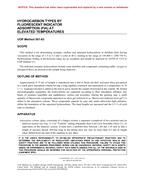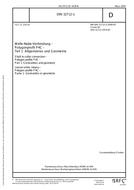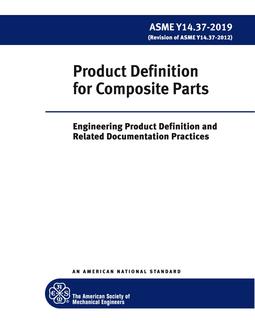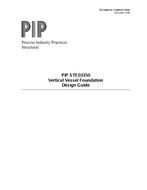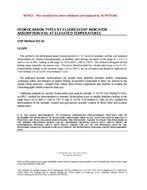
UOP 501 PDF
Original price was: $287.00.$172.00Current price is: $172.00.
Hydrocarbon Types by Fluorescent Indicator Adsorption (FIA) at Elevated Temperatures
| Published by | Publication Date | Number of Pages |
| UOP | 07/24/2002 | 12 |
UOP 501 – Hydrocarbon Types by Fluorescent Indicator Adsorption (FIA) at Elevated Temperatures
This method is for determining liquid volume-percent (LV-%) levels of aromatic, olefinic and saturated hydrocarbons by column chromatography, in distillate fuels having viscosities in the range of 1.5 to 5.5 mm2/s (cSt) at 40 degrees C, boiling in the range of 150 to 400 degrees C (300 to 750 degrees F). The method is designed for full boiling range materials, not narrow cuts. The lower detection limit for a hydrocarbon type is 0.4 LV-%. Hydrocarbons boiling in the kerosene range (150 to 290 degrees C) are an exception and should be analyzed by UOP Method 311 or ASTM Test Method D 1319.
The indicated aromatic hydrocarbons can include some diolefins, aromatic olefins, compounds containing sulfur and nitrogen or higher boiling oxygenated compounds if these are present in the sample being analyzed. Samples that contain dark-colored components that interfere in reading the chromatographic bands cannot be analyzed.
Additional methods for specific hydrocarbon type analysis include: 1) ASTM Test Method D 6591, an HPLC method for determination of aromatic hydrocarbon types in middle distillates boiling in the range from 150 to 400 degrees C (300 to 750 degrees F) and 2) ASTM Test Method D 5186, an SFC method for determination of the aromatic content and polynuclear aromatic content of diesel fuels and aviation turbine fuels.
Product Details
- Published:
- 07/24/2002
- Number of Pages:
- 12
- File Size:
- 1 file , 75 KB

